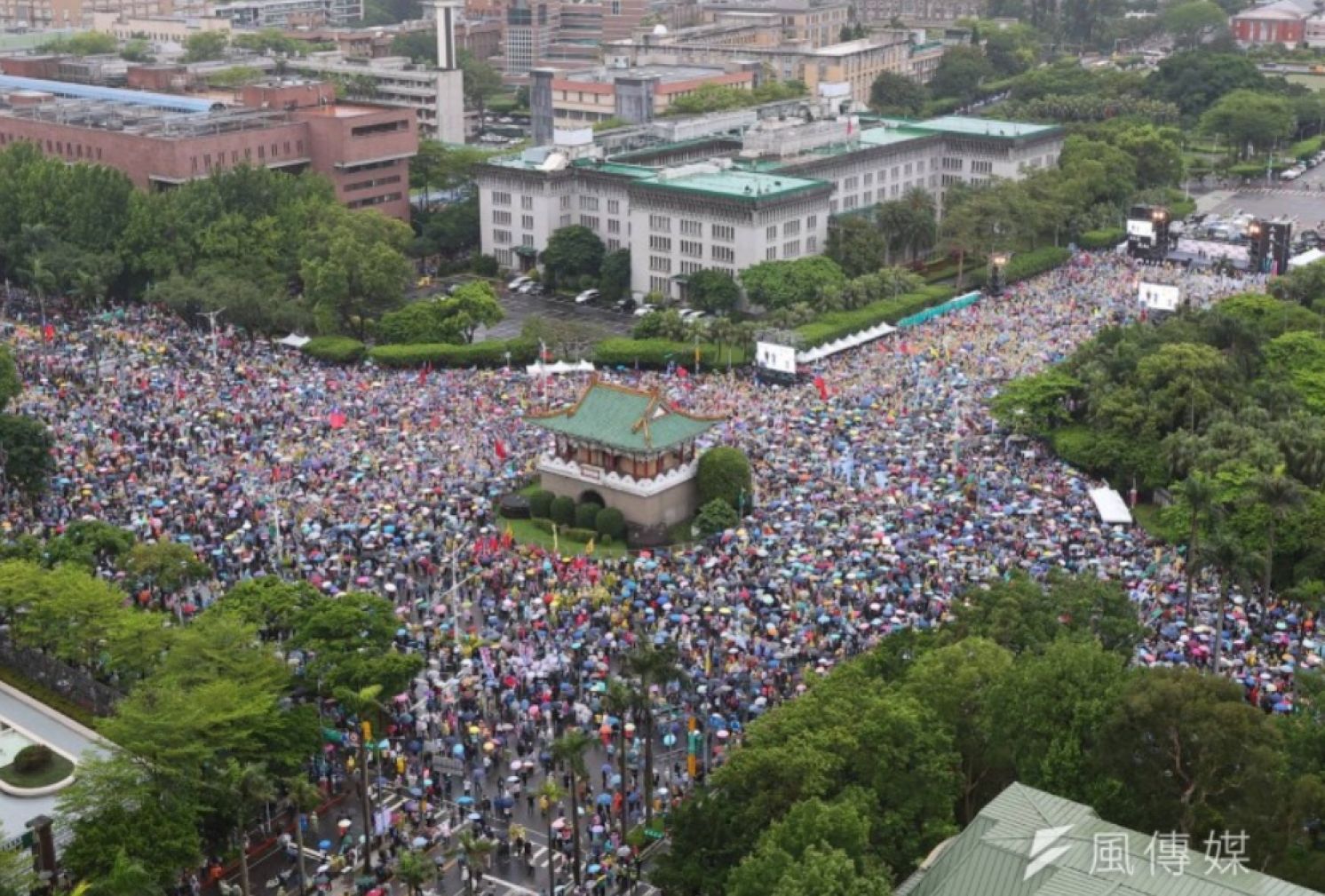
President Lai's Democratic Values Bemchmark Against China's Autocracy
United Daily News, Featured Editorial, April 29, 2025
Such disregard for public sentiment is detestable. President Lai Ching-te responded coldly: “If you’re fighting dictatorship, go to Tiananmen!”, when 200,000 citizens took to Ketagalan Boulevard to oppose DPP Communists and fight dictatorship.
Even more alarming is President Lai’s cynical use of Communist China as both a weapon and a shield—an ugly mindset. His administration has recently cracked down on mainland Chinese spouses and carried out intrusive household inspections, labeling the opposition as “fellow Chinese Communist sympathizers.”
In this, China becomes a weapon to attack dissent. But when the public protests, President Lai turns around and uses China as a scapegoat to deflect criticism of his own authoritarian rule.
First, he portrays Communist China as an “enemy” to incite anti-China hatred.
Then, he weaponizes it as an “arrow” to strike at opposition parties. Finally, he uses it as a “shield” to block criticism from the people.
President Lai’s bizarre logic treats China as a cure-all for all his governing failures. Thanks to this political sorcery, the Democratic Progressive Party (DPP) plays the anti-China card with great fanfare, sweeping away incompetence and embarrassment.
But not all citizens are that gullible. When President Lai told protesters on Ketagalan Boulevard to demonstrate at Tiananmen, he revealed how shallow his understanding of democracy truly is.
For a president of a democratic nation to tell protesting citizens to direct their anger at a foreign authoritarian regime—what kind of rogue logic is that? And yet President Lai says it without shame.
Does the existence of a dictatorship across the strait somehow grant Taiwan’s president immunity from scrutiny? If so, can Taiwan still call itself a democracy?
According to President Lai’s logic, as long as Chinese President Xi Jinping remains in power for a third term, anything he does—no matter how unlawful or autocratic—is justified, simply because “it’s not as bad as China.”
Since when has Taiwan’s democracy been judged only in comparison to Beijing’s dictatorship? And does President Lai not realize that his abuse of power places him in the same league?
Unlike former President Tsai Ing-wen, who secured a strong mandate, President Lai only secured about 40 percent of the vote. The DPP also lost its legislative majority. This means he should govern with greater humility and listen more patiently to the people.
Instead, President Lai—who brags about having a “strong destiny”—seeks to rule with absolute authority despite weak public support. He has used a series of executive rejections and constitutional challenges to suppress opposition decisions, launched undemocratic mass recall campaigns to alter the composition of the Legislative Yuan, and wielded the judiciary as a tool to crush potential threats.
In Taiwan’s system of five government branches, only the Legislative Yuan still holds out against executive dominance; the other four have become pawns of President Lai’s authoritarian grip. Is there still any doubt about the nature of his rule?
President Lai’s remark telling citizens to “go protest in Tiananmen” wasn’t just a slip of the tongue—it revealed that his commitment to democracy was never rooted in absolute values. He lacks the passion and ideals of the DPP’s founding generation who fought authoritarianism, and he has none of the constitutional concern shown by the lawyers who defended the human rights activists in the 1979 Formosa Incident.
President Lai is more focused on maintaining his status as the “chosen son of Taiwan independence,” using it to suppress the public, the opposition, and even his own allies in the DPP.
Back in early 2015, while serving as Tainan mayor, Mr. Lai refused to enter the Tainan City Council for 246 days over corruption allegations involving then-Speaker Lee Chuan-chiao—despite no legal ruling at the time—this blatant defiance of a democratic process led to his impeachment by the Control Yuan.
A decade later, as president, he has recycled the same tactic, paralyzing the Legislative Yuan through repeated executive rejections and constitutional maneuvers, and now launching a mass recall to overhaul the parliament entirely. This is “Lai-style democracy”: as mayor, he crushed the Tainan City Council alone; as president, he seeks to topple the parliament and dismantle constitutional checks and balances.
In short, President Lai exhibits a self-centered personality, using twisted political rhetoric to undermine the system. You won’t see any genuine commitment to democratic values in him. Though elected by just 40 percent of voters, he tramples the Legislative Yuan, abuses judicial power, and shows no restraint.
When he told the people on Ketagalan Boulevard to “go to Tiananmen,” he clearly saw only enemies—not citizens. When a democratically elected president refuses to face public scrutiny, does he still deserve public respect? And most disturbingly, when he one moment hurls Communist China like a spear, and the next hides behind it as a shield—can such a person ever truly believe in democracy?
From: https://udn.com/news/story/7338/8704878
〈Back to Taiwan Weekly Newsletter〉